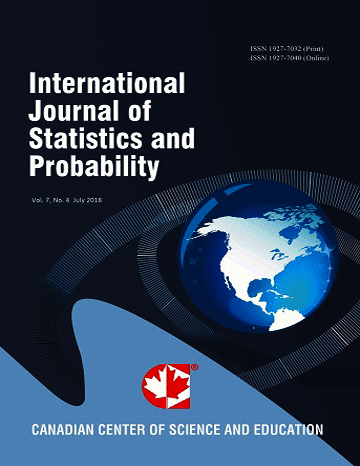Iterative Approaches to Handling Heteroscedasticity With Partially Known Error Variances
- Morteza Marzjarani
Abstract
Heteroscedasticity plays an important role in data analysis. In this article, this issue along with a few different approaches for handling heteroscedasticity are presented. First, an iterative weighted least square (IRLS) and an iterative feasible generalized least square (IFGLS) are deployed and proper weights for reducing heteroscedasticity are determined. Next, a new approach for handling heteroscedasticity is introduced. In this approach, through fitting a multiple linear regression (MLR) model or a general linear model (GLM) to a sufficiently large data set, the data is divided into two parts through the inspection of the residuals based on the results of testing for heteroscedasticity, or via simulations. The first part contains the records where the absolute values of the residuals could be assumed small enough to the point that heteroscedasticity would be ignorable. Under this assumption, the error variances are small and close to their neighboring points. Such error variances could be assumed known (but, not necessarily equal).The second or the remaining portion of the said data is categorized as heteroscedastic. Through real data sets, it is concluded that this approach reduces the number of unusual (such as influential) data points suggested for further inspection and more importantly, it will lowers the root MSE (RMSE) resulting in a more robust set of parameter estimates.
- Full Text:
 PDF
PDF
- DOI:10.5539/ijsp.v8n2p159
Index
- ACNP
- Aerospace Database
- BASE (Bielefeld Academic Search Engine)
- CNKI Scholar
- DTU Library
- Elektronische Zeitschriftenbibliothek (EZB)
- EuroPub Database
- Excellence in Research for Australia (ERA)
- Google Scholar
- Harvard Library
- Infotrieve
- JournalTOCs
- Mir@bel
- Open policy finder
- ResearchGate
- Technische Informationsbibliothek (TIB)
- UCR Library
- WorldCat
Contact
- Wendy SmithEditorial Assistant
- ijsp@ccsenet.org
